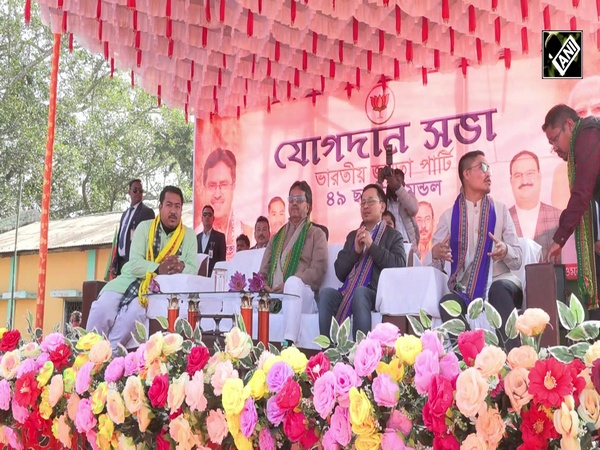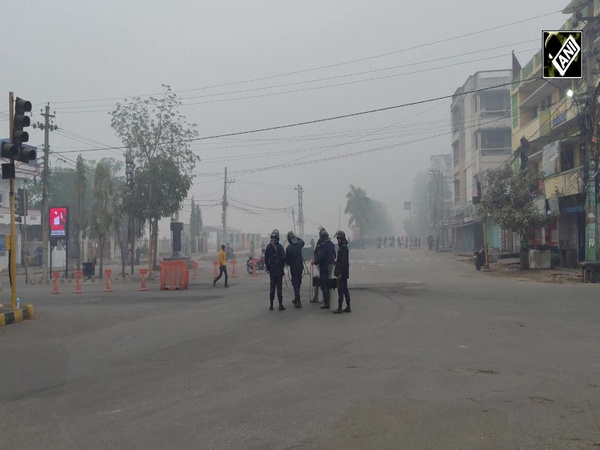China's infrastructure projects in West Africa damage environment
Nov 09, 2022

Beijing [China], November 10 : China's debt-inducing infrastructural projects in the African continent have led to severe concerns in the region. Beijing has planned different investments through different segments. Amid the worries that have been rising in the economic sector, the primary concern that is being raised is the damage caused by Chinese projects in the sensitive regions, The Citizen reported.
In the past couple of years, West Africa has been increasing its engagements with China. China has started focusing on western African nations, including Senegal, Ghana, Sierra Leone, Guinea, Nigeria, Gambia and Togo. The majority of these nations have untapped natural resources which China likely sees to exploit for its own natural reserve needs.
Protests have erupted in Gambia and the primary cause for growing anger within Gambian communities against Chinese firms is due to contamination of water in the Gunjur beach, The Citizen reported. A Chinese-owned fishmeal firm started a factory in the region in 2016 and it started throwing away the waste material into the ocean. The action subsequently resulted in a long pile of dead aquatic animals washing up to the shores.
After the contamination started to spread, local residents claimed that the colour of the water has started to change and preserved wildlife have began to die. The situation turned worse as the government did not take action regarding the matter. The factory started by a Chinese-owned fishmeal firm seems to be operating with no concern regarding the ecological damage it is causing upon the communities and wildlife in the region.
Separately, Environmental groups have criticised China's investment in Sierra Leone for fishing development projects which they insist have been affecting waterbed and aquatic lives in the region. The Sierra Leone government received $55 million from China in building a fishing harbour and fishmeal plant. In addition to sea-facing nations on the western front, Chinese investments have also caused an ecological disaster in the landlocked nation of Mali, as per The Citizen report.
China imported up to half a million kosso trees worth around $200 million between 2017 to 2022. The sourcing of kosso trees for rosewood extraction is considered one of the most destructive sourcing to the concerned regions and forests.
Mali announced a rosewood harvesting ban in 2020 which was later lifted and an export ban was imposed. However, local investigators have claimed that China continues to source the banned logs by paying bribes to senior officials.
Chinese traders in the region have over-logged forests inflicting social, economic and environmental losses to the nations. Nations like Ghana and Ivory Coast were witnessing low-level environmental compliance by Chinese firms that were working on constructing infrastructural projects in the region.
Chinese-owned China International and Water Electric started building the Isimba Hydroelectric Power Station on the White Nile in Uganda, The Citizen reported. The construction was started despite repeated warnings that it could cause damage to protected areas and habitats. Similarly, Sinhydro International in Ivory Coast did not pay attention to ecological concerns raised for creating redressal systems for locals around the Sassandra river affected by the Hydroelectric power station.
A US-based non-profit organization, International Rivers in its report in 2019 warned that Chinese state-owned firms did not meet environmental and social standards in their projects in Africa. According to The Citizen, the ecological damage caused by these projects is irreversible as they could likely end the economic and strategic advantage of the host nation.
















